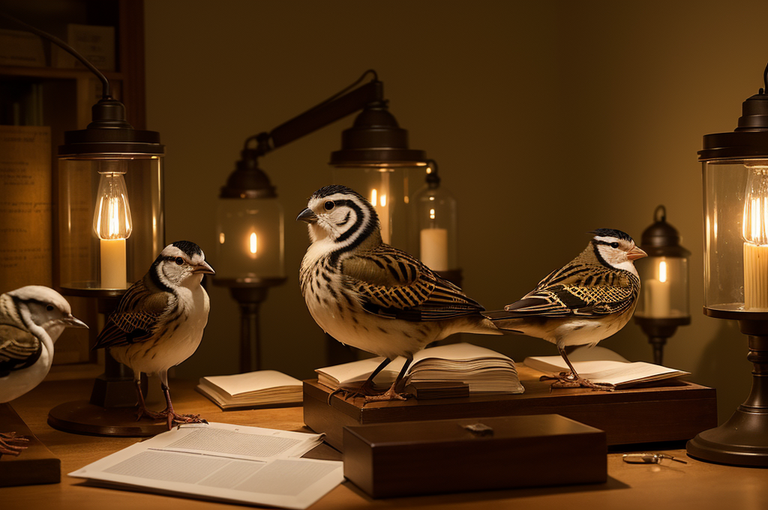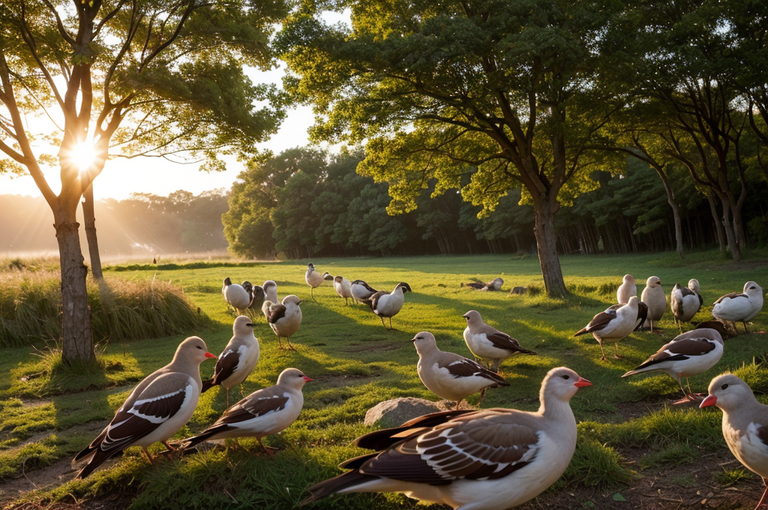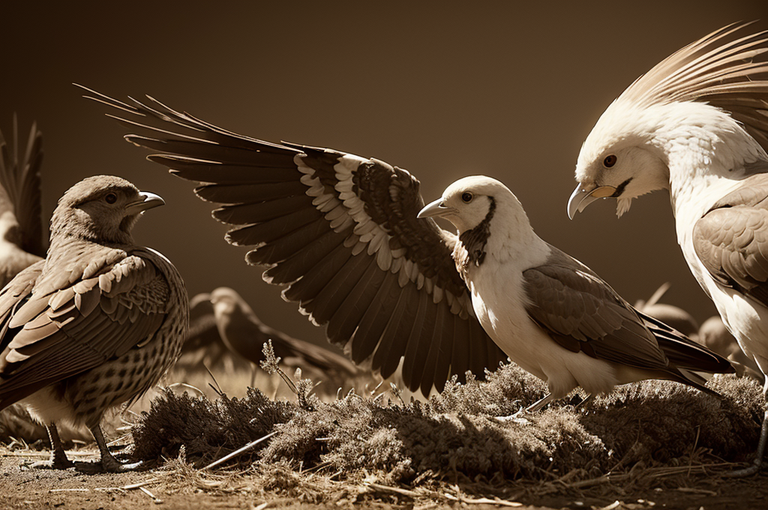Understanding What to Feed Birds: The Risks of Human Foods and Safe Alternatives

This article discusses the negative effects of human food on bird health, suggests bird-safe alternatives and emphasizes the need for clean feeders and avoidance of pesticides.
Harmful Human Foods for Birds
Like the soaring swoop of an eagle or the delightful dance of the hummingbird, the question can i feed bread to wild birds came flapping into my thoughts. It’s admittedly, a common query I encounter during my morning walks. But before I feed my feathery friends, we need to investigate this query’s winged veins.
Impact of Bread on Birds
Bread, oh the crumbly delight, appeals to us all, humans and birds alike. But not all that chirps is gold, and this is especially true for bread. It might seem harmless, but in reality, it’s as insubstantial as an empty nest. Devoid of the essential nutrients, it offers little but empty calories to their diet and is akin to junk food for our winged companions. Worse, it can be a choking hazard and may even spur the onset of the Angel Wing syndrome a serious condition that hampers their flight prowess.
Risks of Salty Foods for Birds
You might spot them pecking away at a salty French fry carelessly thrown to the ground. However, just like for us, foods high in sodium are a no go for birds. Their delicate system has minimal salt requirements and an overload can tip the delicate balance, leading to health issues.
Dangers of Avocados for Birds
Speaking of health risks, let’s take a peep at avocados. These green delights might be a millennial’s breakfast favorite, but for birds, they’re far from benign. Avocados house a fungicide called persin, a substance that can clutch the bird’s heart, causing serious lung and heart complications.
As I close my notebook, scribbled with observations and thoughts, I invite you to take a deeper look, a closer listen at the avian world around us. Our feathery friends sing, chirp, and fill our world with vivacious joy. Let’s return the favor by adopting mindful feeding habits, ensuring they continue to serenade us with their enchanting melodies for eons to come.

Foods Birds Should Avoid
As an avian enthusiast and the author of a wild bird book, I’ve learned that while our feathered friends are often curious eaters, not everything we humans consume is suitable for them.
Issues with Dairy Consumption by Birds
You might be tempted to share a smidgeon of your cheese with a cheeky sparrow perched nearby, but it’s best to resist. Birds are lactose intolerant, and while they might peck at dairy products offered to them, it doesn’t bode well for their delicate digestive systems.
Risks of Fruits Pits and Seeds
Fruits are generally a safe and nutritious option, beautifully capturing the vibrant spectrum of a bird’s diet. However, caution presides when it comes to fruit pits and seeds. Birds are typically unaware of their inherent risks. These seemingly innocent kernels contain cyanide, a toxin that poses a substantial threat to our avian friends, potentially causing harm or even becoming lethal.
Hazards of Chocolate to Birds
There’s something heartwarming about sharing a bit of our comfort foods with beings that bring us so much joy, isn’t there? However, when it comes to sharing our guilty pleasures, like chocolate, with birds, it’s a firm no go. Chocolate, unfortunately, consists of dairy and caffeine both elements that are unfit for avian consumption due to potential adverse health effects.
This exploration of bird gastronomy serves as a reminder that though we love to indulge our feathered friends, we must always be cognizant of their unique dietary needs and restrictions. Our role in the life story of birds demands no less. The intricate splendor of these creatures, illustrated brilliantly in my wild bird book, underlines the importance of laying out a feast that’s both an avian delight and safe to munch on. Remember, every choice we make can either hinder or promote the well being of these wondrous beings we share our world with. Let’s choose wisely.

Feeding Best Practices
Like the balletic flutter of a hummingbird, the act of feeding wild birds is an encounter where precision dances with passion. Each morsel of feed for wild birds can carry the weight of survival for these winged marvels.
Choking Hazards for Birds
The concern first and foremost is to curb hazards even as slight as a tiny bread chunk or an uncracked peanut which could lead to unsuccessful feeding attempts and even risk the bird’s life. The threat of choking can sometimes lurk in their feed, urging us to stay cautious in our efforts.
Importance of Fresh Foods
While the arrival of fresh foods in the bird feeder might cue the start of a delightful avian symphony, spoiled or moldy fodder abruptly halts the performance. The health of our feathered friends delicately balances on the quality of their food, making it crucial to inspect edibles for detrimental decay.
Benefits of Quality Bird Seeds
Sometimes, the songbirds almost seem to echo our praises for quality bird seeds. The rainbow of bird species flocking to the feeders hints at an avian preference for this menu item. Respected for their nutritive composition, these seeds sustain their life and vibrancy.
As we select the feed for wild birds, each of us holds the well being of these charming creatures in our hands. Just like the harmonious coexistence of different species in a forest, a careful blend of concern, observation, and commitment assures the birds of their next hearty chirp. Penelope shows us how we too can participate in the undying aria of the wilderness, one bird feed at a time.

Proper Bird Feeding Environment
The realm of wild birds is cloaked in a richness of secrets that only a truly dedicated observer can hope to unlock. As I meld with the hues of dawn, the enchanting bird songs become my companions, unlocking fascinating truths. It gets one wondering, can wild birds eat bread? Here, we dive into the sanctum of bird feeding, painting a picture of careful nurturing and supervision, rather than reckless generosity.
Importance of Clean Bird Feeders
The essence of maintaining cleanliness around bird feeders is not to be taken lightly. Winged beauties aren’t strangers to disease and to prevent its spread, regular cleaning of bird feeders is a must. Imagine this as your own dining area, you’d ensure it’s as clean as a new dawn, correct? This simple action is a small but crucial step towards creating a healthier environment for our feathery friends.
Consequences of Angel Wing Syndrome
Many bird lovers make the simple mistake of feeding bread to wild birds. Bread may seem innocuous, but it’s the invisible harbinger of a fatal and incurable condition known as Angel Wing syndrome. I’ve seen birds held captive by this disease a silent plea in their eyes that resonates painfully with those who understand. Their plight serves as a stern reminder to veer away from such harmful feeding practices.
The Impact of Pesticides on Birds
In our quest to control pests, we often forget to assess the collateral damage inflicted upon our feathered compatriots. The reverberation of pesticides in our soil and air isn’t just ours to bear, but theirs as well. As we strive to restore their natural habitats and support species that do not feed solely on seeds, it’s crucial to minimize the use of these chemicals. Every step we take towards this pursuit brings us closer to a world where nature thrives in its harmonious symphony, unmarred by man’s interference.
Just as the enchanting bird songs echo in the morning air, the message here resounds clear respect the natural rhythms of the avian world, the way they respect ours. A clean feeder absent of bread, free of pesticides and in pace with the natural order – that’s the right feeding environment for birds.
Bird-Safe Food Alternatives
Ever wondered, can I feed bread to wild birds? Well, as a matter of fact, there are better alternatives available. Infinitely more beneficial than complex human foods are simple delights such as cracked corn, cheese, and nuts.
Bird-safe Food Suggestions
These humble feed for wild birds have proven relatively harmless and have shown to maintain their health at optimal levels. Remember, wild birds have drastically different dietary needs than our domestic companions. A wild bird book, packed with invaluable information, can be your best guide.
Effects of Human Foods on Birds
I’ve witnessed countless times the ill effects of human foods on these winged wonders. While bread may seem harmless, can wild birds eat bread without any adverse impacts? Emphatically, no. It lacks vital nutrients they need to survive and can lead to severe health issues, even mortality.
Advantages of Bird-safe Foods
On the other hand, bird safe foods offer multifold benefits. They maintain our avian friends’ overall health and even work to prolong their survival. There’s no denying the magic of watching a bird in its natural element, thriving, displaying its captivating essence. To protect this essential harmony, we need to ensure we respect their dietary needs. Their survival in our backyards or in the heart of Alaska’s wilderness is tied to our choices, and it’s our responsibility to make the right ones for them.
Just as the dawn breaks, revealing my feathered companions in all their glory, let this information shed light on how we can best care for them. Little changes in our actions can ensure the enchanting symphony of their existence continues unabated, punctuating our days with sweet chirps and graceful flights.


